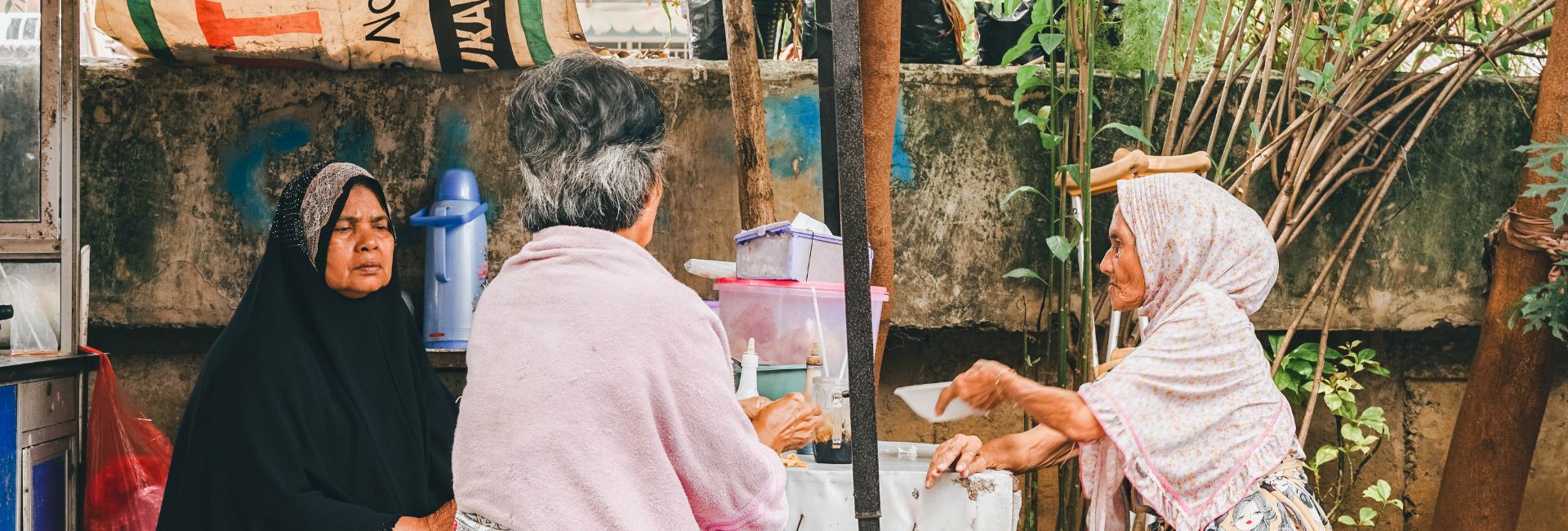Indonesia is gradually moving toward an aging society. Currently, the number of the elderly in Indonesia is reaching 25.6 million people or around 9.29% of the total population (Susenas, 2019). The number is predicted to increase to around 20% in 2040 (BPS in MAHKOTA and TNP2K, n.d.). Furthermore, the UN predicts that the number of the elderly in Indonesia will reach 74 million people or around 25% of the total population by 2050 (MAHKOTA and TNP2K, n.d.). To anticipate this demographic shift, it is imperative to ensure the welfare of the elderly, as they are becoming less productive and vulnerable to any risks and shocks. It is also crucial to provide the elderly, especially those who live in poverty, with a sufficient social protection program.
At the national level, the government through the Family of Hope Program (PKH) included the elderly component as part of the program’s beneficiary criteria in 2017. The amount received by the beneficiary is around 2.4 million rupiah annually. In 2019, the program reached around 2 million elderly people (MAHKOTA and TNP2K, n.d.).
At the regional level, several regional governments, such as in Aceh and DKI Jakarta, have provided programs targeting the elderly. The government of DKI Jakarta, for example, has issued the Jakarta Elderly Card (KLJ) program which provides benefits of up to Rp600,000 monthly and it has benefited around 40,419 elderly people (MAHKOTA and TNP2K, n.d.).
This research seeks to better understand the welfare of the elderly and the existing social protection programs targeting the group. Specifically, this research aims to:
- gain comprehensive knowledge of the existing welfare of the elderly and social protection programs targeting them (including contributory and noncontributory schemes);
- collect stories of the elderly with and without social protection in DKI Jakarta, DI Yogyakarta, and Bali; and
- evaluate the impact of KLJ on the welfare of the elderly and their families.
This study will be conducted using mixed methods. The quantitative method will be used to evaluate (i) the impact of KLJ on the elderly’s access to basic needs and services and (ii) the well-being of the elderly in DKI Jakarta. We will conduct a household survey that involves approximately 2,000 households with an equal allocation of KLJ beneficiaries and nonbeneficiaries. The qualitative method will be used to explore the life stories of the elderly in DKI Jakarta, DI Yogyakarta, and Bali. The qualitative team will collect data through in-depth interviews and observations.




